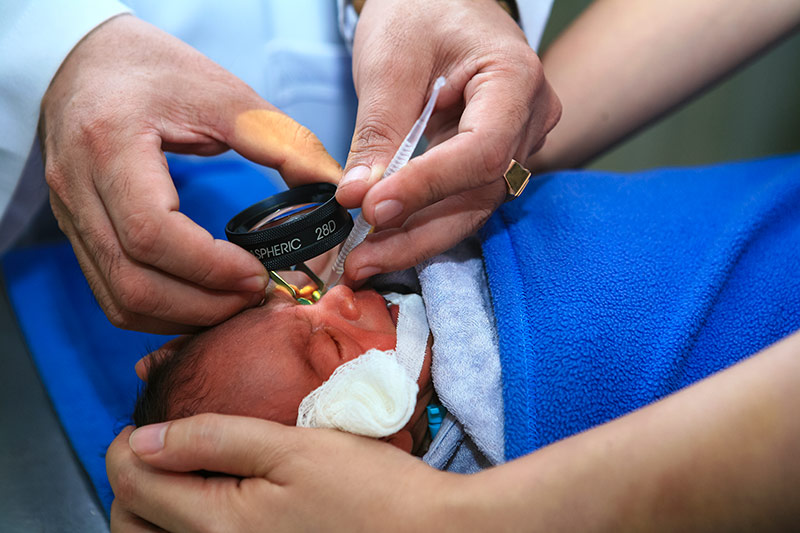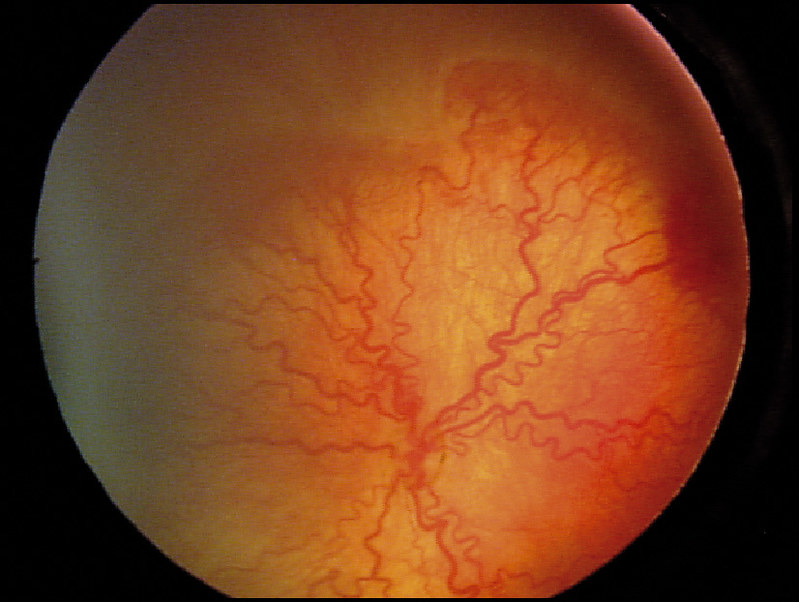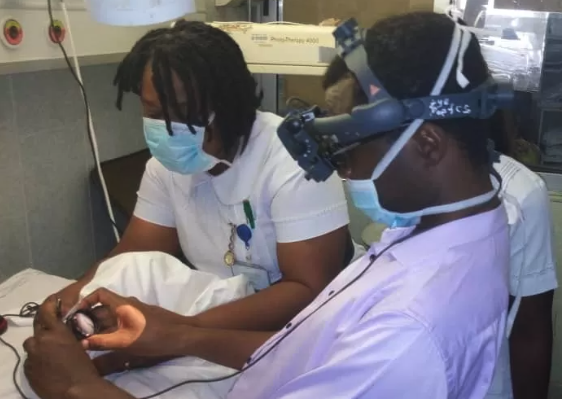The Retinopathy of Prematurity Network

Image credit: Hanh Pham, Orbis International
Join Us
Register your interest in joining the ROP-NET by using the form here:
The Challenge
Retinopathy of prematurity (ROP) is a disease that affects premature babies, causing abnormal blood vessels to grow in the retina and can lead to blindness. ROP is the most common cause of blindness in middle income countries and is becoming increasingly frequent in low income countries as neonatal services improve and more premature babies survive. Many low and middle income countries (LMICs) haven’t got policies and services in place to detect and treat ROP.
An overview of the landscape for ROP in 2023 is available here.
Our Mission
The ROP-NET was established to reduce unnecessary blindness from retinopathy of prematurity in low- and middle-income countries (LMICs), through capacity-strengthening activities, policy engagement, and context-specific research.
The aim is to develop sustained, high-quality ROP screening and treatment services to prevent blindness in premature babies in LMICs.
About Us
ROP-NET was established in 2017 and is based around South-South partnerships which matches institutions in Africa and Asia with mentor institutions currently based primarily in India and South Africa.
The “mentor” institutions were chosen based on their ability to train teams in ROP screening and treatment and offer ongoing support and mentorship. The “mentee” institutions were chosen based on the need for improving their ROP programmes.
Institutes included in the first phase came from Kenya, Tanzania, Nigeria, Ghana, Pakistan and Sri Lanka. These countries were at very different stages in their development with some having no ROP programme in place and others needing to expand their existing programmes rurally or nationally. Each partnership had its own specific and unique needs and aims from the network. Since the establishment of the network the initial goals achieved were:
- Ghana and Tanzania started delivering ROP screening for the first time
- Kenya established an ROP National Working Group which published national ROP guidelines and delivered ROP screening training in new neonatal units
- In Nigeria further neonatal units were included in ROP screening with new training and national level advocacy
- Sri Lanka increased awareness amongst neonatologists and neonatal nurses and trained optometrists to screen for ROP
- Pakistan held a national planning meeting agreeing a roadmap for the way forward in national ROP prevention and treatment
Phase 1 of the network was funded by the Queen Elizabeth Diamond Jubilee Trust.
Phase 2 of the ROP network has recently been launched; we are open to new members and are trying to secure funding.
This phase of the ROP network will keep the successful South-South partnerships and network model, with country-led programme goals from strong local multi-disciplinary teams. In most of the locations where ROP-NET members are working, telemedicine offers opportunities to scale up ROP services.
We plan to focus on:
- Establishing ROP telemedicine screening
- Strengthening data collection and monitoring systems by integrating ROP data into neonatal data systems wherever possible
- Collaborating with Ministries of Health, WHO and UNICEF in-country for integration into national policies in order to establish sustainable programmes
- Holding regular webinars and meetings to discuss clinical cases and service challenges between all network members for continuing education and ongoing support
- Supporting members to publish their findings and case studies
These approaches would allow ROP teams to expand services in a sustainable and scalable way, demonstrate the impact of their programmes and learn from each other’s experiences. Case studies of successful models would provide ‘real life’ examples of how ROP programmes can be established and scaled up in low- and middle-income countries in different settings, taking the impact of the ROP network beyond the countries which are included.
Testimonials
We at Abuja are grateful for being given this great opportunity to advance in our care of premature babies. We thank you all for the sacrifice in coming to help us out. We are eagerly awaiting your coming.
I simply love how it brought people together in the sub- region. It helped us to develop great relationships.
It forced the participants to think in a structured way which resulted in good planning and establishment of ROP screening in the world region where services were not available before.
Publications
The following publications have resulted from the ROP-NET activities:
Ademola-Popoola DS, Fajolu IB, Gilbert C, et al. Strengthening retinopathy of prematurity screening and treatment services in Nigeria: a case study of activities, challenges and outcomes 2017-2020. BMJ Open Ophthalmology. 2021;6(1):e000645.
Epidemiology of ROP update – Africa is the new frontier. Seminars in Perinatology. 2019;43(6):317-322.
Braimah IZ, Enweronu-Laryea C, Sackey AH, et al. Incidence and risk factors of retinopathy of prematurity in Korle-Bu Teaching Hospital: a baseline prospective study. BMJ Open. 2020;10(8):e035341.
Sara S, Mwangi N, Lucy N, O O, Gachago M, Daniel M, Francis M. National guidelines for screening and management of retinopathy of prematurity in Kenya: an overview of the recommendations. The Journal of Ophthalmology of Eastern, Central and Southern Africa. 2020;23(1).
Onyango O, Sitati S, Amolo L, et al. Retinopathy of prematurity in Kenya: prevalence and risk factors in a hospital with advanced neonatal care. Pan Afr Med J. 2018;29:152.

What is ROP?
Find out more about Retinopathy of Prematurity and why it is a problem

Case study
Read how a hospital in Ghana was able to implement an ROP programme due to support from the network
